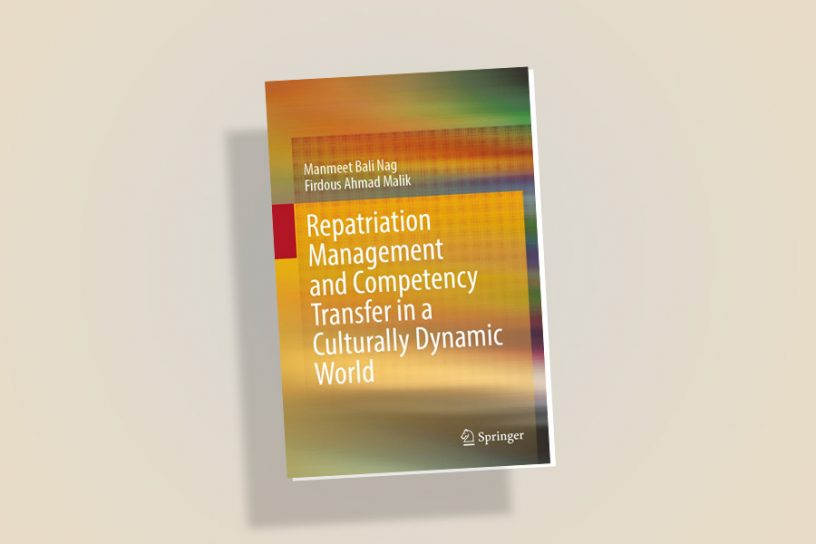
This book explores cross cultural movement & interactions in International human resource management, where the theme of cross-cultural reentry remains largely neglected and underestimated in the sojourner’s transition trajectory.
Authors
Manmeet Bali Nag, Department of Management and Commerce, Manav Rachna University, Faridabad, India.
Firdous Ahmad Malik, Jindal Center for Global South, O. P. Jindal Global University, Sonipat, India.
Summary
This book examines the relevance of global strategic perspective, as international competition continues to intensify & gain momentum, and management of human resource remains a challenge in contemporary corporate scenario. As global business strategy requires globally competent people and implementation of global human resource systems, therefore the need to harness the multi-faceted dimensions of corporate employees is elaborated upon. This book explores cross cultural movement & interactions in International human resource management, where the theme of cross-cultural reentry remains largely neglected and underestimated in the sojourner’s transition trajectory.
This book takes into account the available empirical investigations pointing to substantial concerns, affecting the psychological wellbeing, social readjustment and cultural identity of the returning individuals. This book examines the significance of re-entry as an issue of highest priority to both sojourning individuals as well as people managing the reentry transitions of travelers.
In light of the unfolding knowledge revolution, the book explores the context of corporate India offering high knowledge density and rich demographic dividend. The need for companies, to harness the knowledge capital and accelerate Indians in the knowledge revolution is examined. Various factors that can influence the repatriation of an individual when back in the home country, and the challenges faced in repatriation at the individual-, team-, organizational-, and country-levels, is explored & analyzed. This book focuses on eliminating overall wastage and losses in Repatriation process, from an organizational point of view.
The purview of this book encompasses the interface of Anticipatory Adjustment, Competency Transfer, Effective Repatriation and Reverse Culture Shock with Repatriates’ Adjustment, back home, and empirically analyzes the precursors and effects of the said paradigms in optimization of Repatriate talent from an organizational perspective.
The purpose is to analyze the antecedents of repatriate adjustment in the mentioned context and to subsequently deliberate upon the acquired results to arrive at feasible and relevant conclusions. Optimization of Repatriate talent, and Repatriation Management from International Human Resource Management (IHRM) perspective, deserves a cross-disciplinary study of precursors effecting Repatriation Adjustment, with focus on the dimension of Indian Repatriate acculturation.
Published by: Springer Singapore
To read the full article, please click here.


